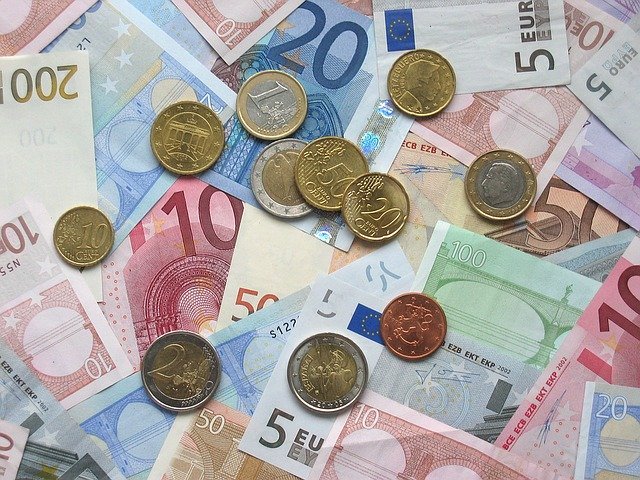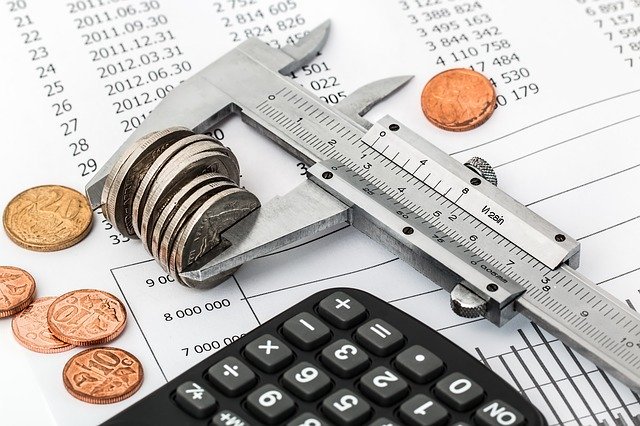Personal Finance
Personal Finances And Keeping Track Of Things

There is more to the subject of personal finance than just money. It has more about good old-fashioned common sense than any type of special training. Managing personal finances is something that is learned and most individuals learn the tough way. Take the following advice seriously and learn to implement these changes to your finances to experience a happier and less stressful life.
Eat like a local would to save money in a foreign country. Restaurants in your hotel, as well as in areas frequented by tourists tend be be significantly overpriced. Look into where the locals go out to eat and dine there. You’ll find the most delicious and best priced fare in the area.
Stop buying certain brands and buy whatever you have a coupon for. If you’re used to buying one kind of detergent but now you have a coupon that saves money on a different brand, go with the one that is cheaper.
Documenting each purchase you make daily can allow you to learn where your money is going. However, you should keep in mind that if you write what you’re spending in a book that you won’t look at for the majority of the day, your finances may be forgotten. If you list your expenses in a noticeable area, such as on a marker board, this may help. You will pass by it all day so it stays in your mind.
Stop using your credit cards you cannot afford. Pay off your monthly balance before making future purchases with the card.
To improve your personal finances, steer clear of excessive debt when you can. Obviously there are situations when you cannot avoid debt, such as obtaining a mortgage; items such as credit cards should be given a wide berth. The less you have to borrow, the less hard-earned money you will lose to interest and fees.
Take advantage of online alerts that your bank can offer you. Many banks can email or texts when there is activity reported on your account.
Typically owning two to four credit cards that you regularly use and pay off will help keep your credit score high. Having just one card means slower accumulation of good credit, but having five or more cards can add unnecessary complexity to your finances. Begin with two cards, then add additional cards as necessary to build your credit.
If you are new to financial independence, but are under 21, especially if you are under the age of 21. It used to be easy for college-age students to get a credit cards were freely given to college students.Research each card’s requirements for a specific card before applying.
Most debt collectors will negotiate the amount owed on an account. Debt collection agencies purchase the debt for a fraction of what was originally owed. Even if you only pay 50% of your balance, they will make money. By taking advantage of how this system works, you can pay off old debts for less than what you owe.
To ensure timely credit card payments have them withdrawn from your bank. Even if you can’t pay your balances off in full, making minimum payments on time helps to establish a good payment history. If you schedule an automatic debit of your checking account, late payments never happen and you can pay more than the minimum if you happen to have some extra funds free.
Take advantage of your flexible spending account. It can help pay for medical and daycare bills, and can cost less money in the long run because of how it is funded. With a flex spending account, you set aside a certain amount of pretax money, which you can use to pay for needed expenses. However, as there are tricks to using this type of account, it is best to seek clarification from an accountant before entering into one.
By carefully governing your cash inflow and outflow, you will be able to do proper maintenance on any property that you own. Keep track of your income and how much you spend so that you can see how your investment’s performance each month.You should have use a property budget.
Knowing what possessions a person has, and their real value, can prevent those items from being sold unknowingly at a garage sale for 25 cents, or making their way to the Goodwill. Your personal finances will most certainly improve when you choose to sell that rare antique piece of furniture, instead of donating it to goodwill.
Avoid fees by using your bank.Financial institutions like banks often charge high transaction fees when people use other ATMs, and those can build up fast.
Credit card balances play a big role in your FICO score. The larger you let your balance get, the more your score will go down. If you want to lower your score, pay off your balance. Try keeping the balance below 20% of the total allowed credit.

This can help ensure that you never make payments within the specified period. This will allow you to budget and allow you from incurring late fees.
Read any mail that your credit card company sends you. The law says that they have to let you know 45 days ahead of time. Read over the changes and assess if the changes are worth you keeping the account. If not, pay it off and close it!
Try to save even a small amount of money every day. Instead of overpaying for groceries every single week, or things that look appealingly packaged today, shop around and find the best deals. Be willing to substitute food that is currently on sale.
Don’t try to save money by skimping on home or vehicle maintenance. Big problems later on will be prevented by being responsible for everything you own. Over the long term, taking care of your property will save you money.
Watch for letters that tell you about changes in your credit account. The law states that these creditors must give you at least 45 days before the changes go in affect. Read the changes and assess if the changes make it worth your while to maintain the account. If the changes are not to your liking, think about closing it.
The best way to be successful with your finances is to have a budget that you have written down. Start your written budget by listing all of your monthly expenses. Be certain to include any living expenses, such as mortgage payments, electricity, car payments, cell phones, groceries and other regular payments. Be sure to include all expenditures that you think you will make. Write down the amount you need to pay, and never spend more than what you earn.
Credit Report
For small purchases, you should have 10 dollars on a debit card, or in cash, readily available. Recent law changes now allow merchants to dictate a minimum purchase when you are using a credit card.
Be sure to stay on top of your credit report from time to time. You can also check your credit report for free.
You should realize that it is never too late to put personal finances in a better order. No matter when you start, there will be a point down the road where you’ll be better off than if you let the matter slide. There is no such thing as a bad starting point where finances are concerned.
Avoiding debt wherever possible is a simple and powerful guideline for keeping personal finances. A loan is appropriate for buying a car or a house. You shouldn’t rely on using credit cards to get you by day to day.
Compound interest can be a powerful force for improving finances, especially for those who take advantage of it early in life. Always save a percentage of every dollar that you earn.
Managing personal finances means different things for different people. Only you’ll know what is right for you. Hopefully, you are now better informed about managing your personal finances and can take this knowledge to the bank. Keep this information close by so you always have it as a good reference. You will reap great rewards by using the techniques you just learned.
Include foreign exchange trades in your investment portfolio. International investments can be made through a no load mutual account, it will give you what you need and also lessen your cost of research.


